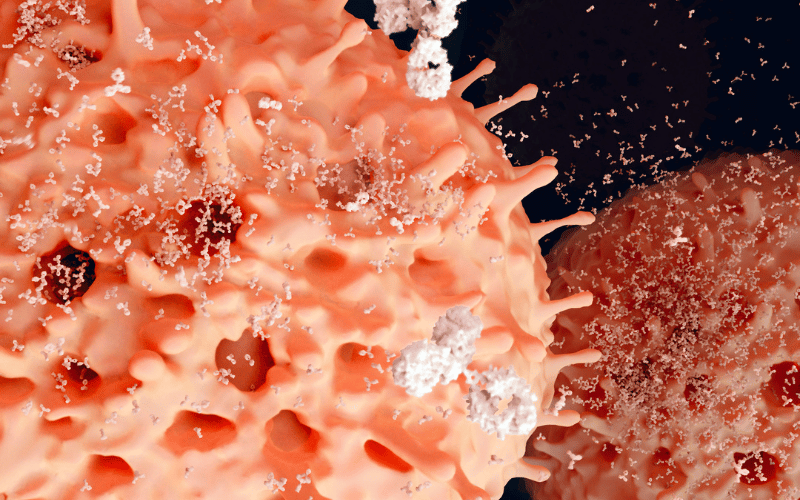Fact 4: The Role of Plasma Cells

In the vast cellular tapestry of our body, plasma cells stand out for their critical role in the immune system. Nestled within our bone marrow, these cells are essentially B cells that have evolved to become antibody-producing factories. Each plasma cell is tailor-made to produce a specific antibody that counters a unique threat, be it a virus, bacterium, or other pathogens.
In the context of Multiple Myeloma, the narrative surrounding plasma cells takes a dark turn. These cells, usually the champions of defense, start proliferating uncontrollably, becoming a shadow of their protective selves. This abnormal growth doesn’t just remain an isolated event; it has systemic ramifications. The overgrown plasma cells not only crowd the bone marrow but also spill an abnormal protein into the blood.
This protein, termed as ‘M protein’ or monoclonal protein, lacks the protective properties its normal counterparts possess. Instead of acting as a defense, it becomes a marker of disease, sometimes even causing complications in its own right. Kidneys, for instance, might struggle to filter out this protein, leading to potential kidney damage. Additionally, the overcrowded bone marrow struggles to produce sufficient healthy blood cells, giving rise to anemia and other related complications.
One of the daunting aspects of Multiple Myeloma lies in how the malignant plasma cells alter their environment to favor their growth. They release certain factors into the bone marrow, which, in turn, promote their proliferation. It’s a self-perpetuating cycle, with the altered bone marrow environment further facilitating the growth and survival of these rogue cells. (4)